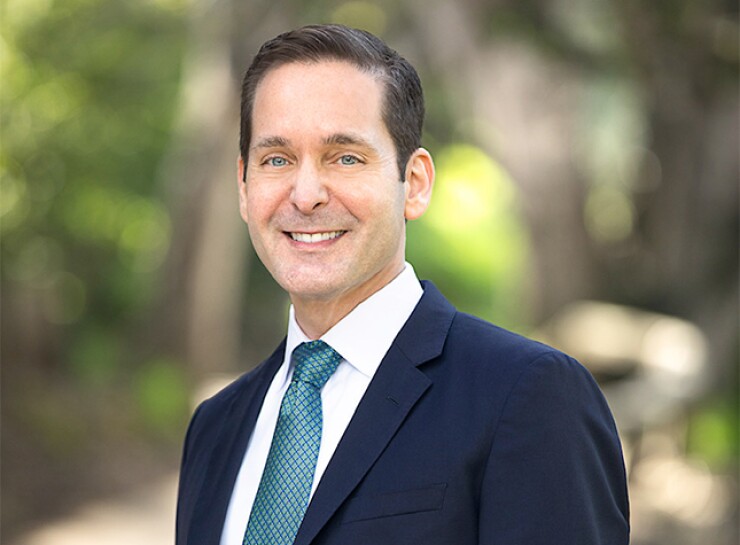Anthony Pugliese was installed as CEO of the California Society of CPAs and the CalCPA Education Foundation on May 1 — but he started working on his agenda even before that.
During the transition period before May 1, Pugliese met with stakeholders and society staff in discussions that led to a strategic plan that he expects to be his main focus for the next two to five years.
“We plan to build on the significant successes [of his predecessor, Loretta Doon] and help the accounting profession evolve further to meet the demands of business today and in the future, while actively growing our membership pipeline,” he explained.
Pugliese laid out the six main elements of his strategic plan in an interview with Accounting Today:
1. Reimagining and transforming the society. Pugliese, who previously served as chief operating officer of the American Institute of CPAs for over a decade, wants to take a fresh look at the society’s business model and its processes, both internal and member-facing. Among other things, he said, “We’re far less digital than I’d like to be.”
2. Promoting competency-based learning. Accountants need to move away from the continuing education model of “butts in seats,” where time spent is the main measure of learning, and toward a model where the transfer of competency is paramount, Pugliese said. This move presents CalCPA, as a leading producer of CPE, with an opportunity to rebrand itself and to prepare its members for new kinds of learning, and for careers where advancement from level to level is based more and more on the acquisition of specific skills and competencies.

3. Advocacy. Citing California’s importance as a bellwether for the rest of the country, Pugliese intends for CalCPA to be actively involved and engaged in state issues. As an example, he cited a recent movement toward deregulating professions in the state, which is currently focused on less complex professions like barbers and hair stylists, but whose goals include eventually minimizing or eliminating regulation even for professions like accounting and engineering — a move that would obviously be of concern to accountants. Even on issues that hit home like that, however, Pugliese suggested that the society’s primary interest wouldn’t be pushing any particular legislative agenda, but rather with providing impartial and accurate information: “It’s about educating legislators,” he said.
4. Future-proofing the profession. “It seems like someone’s got something disrupting the profession every day,” Pugliese said, and it’s critical for accountants to be active participants in shaping their future. CalCPA is supporting the rethinking of the CPA Exam that’s currently underway at the AICPA and the National Association of State Boards of Accountancy, for instance, and he wants to bring more accountants to an understanding of the central importance of technology going forward.
5. Growing membership. Pugliese noted that under Doon’s leadership, CalCPA had grown to be twice the size of any other state CPA society in the country, and he wants to continue that expansion, including reaching new constituencies, like the membership category for non-CPA financial professionals the society recently added. Among other things, he wants to look at growing organizational memberships, particularly corporate memberships.
6. Reinventing the CalCPA brand. Pugliese is interested in maintaining the society’s brand as a home for its current members, but also in being seen as more of a home for future members. “It needs to mean more than it does now,” he said, to appeal to younger generations that may have different ideas about accounting and their careers in the profession.
While those six elements are the pillars of Pugliese’s strategic plan for the society, they won’t be his sole focus, he explained. He’ll be keeping his eye on a wide range of developments, from the ongoing changes in the role of the CFO and the finance department, and the profession’s broad move into advisory services, to state-specific issues like the booming cannabis industry.
“We have an obligation to help our members better understand the changing environment in which they operate, including the types of competition, as well as how their practice areas are or should be evolving,” Pugliese said. “Opportunity is knocking on the profession’s door, and it means that our members will be able to better position themselves strategically for the future.”





